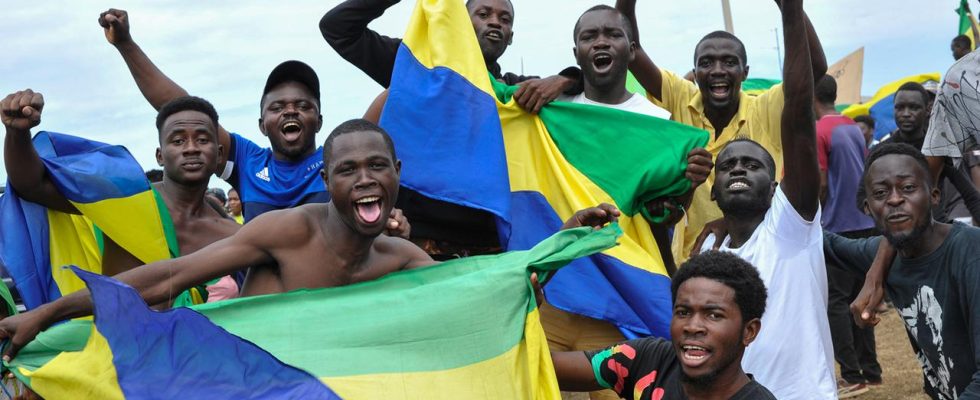interview
Mali, Guinea, Burkina Faso, Niger and now Gabon. Again the military has seized power in an African country. But the reasons for this are very different, explains Africa expert Benedikt Erforth.
NDR Info: Why do the military dare to stage a coup right now – and in very different African countries?
Benedict Erforth: There are two dynamics: On the one hand, there is great dissatisfaction in the various countries where the coup took place – for a wide variety of reasons.
In Niger, for example, it was security concerns and domestic rivalries. In Gabon, the focus is on socio-economic grievances and dissatisfaction with the outcome of the election on Saturday. That is one issue: the dissatisfaction that binds these coups together.
And the other is that we have a self-reinforcing dynamic that a coup can work right now. In addition, however, the situations are to be viewed through a completely different grid.
To person
Benedikt Erforth holds a doctorate in political science, is a research associate and co-project manager of the research and consulting project “Megatrends Africa” at the German Institute of Development and Sustainability (IDOS). His research focuses on European-African relations and the security policy of the EU in the Sahel region.
“Particularly young population dissatisfied”
NDR Info: And what grid would that be? Can you explain that to us in more detail?
Erforth: In Niger, the coup was primarily about security concerns. The population was not satisfied with the security policy of the regime, which was, mind you, a democratically elected regime.
And on top of that, there were very strong domestic political rivalries between the military and the president. It was a very strong power dynamic that drove the coup in Niger.
Things are different in Gabon. We had an election on Saturday that was widely acknowledged as not free and not open. The population, especially the young population, was dissatisfied, not only with the outcome of the election, but with the situation in the country.
We have one of the richest countries in Africa in terms of per capita income with a very poor population. The wealth is concentrated in a very small elite, led by the so-called Bongo dynasty. Father Omar Bongo had been in office since 1967 and was the heart of the so-called clientelism network Françafrique.
It was a small network of French and African elites who ensured that the colonial link was transformed into a post-colonial network – benefiting a few but not the broader population. And it is precisely these grievances that are being expressed in this coup in Gabon right now.
“France remains one of the reference points”
NDR Info: Like Niger, Mali, Burkina Faso, Chad and Guinea, Gabon was a French colony, and the military staged coups everywhere. French President Emmanuel Macron promised a new Africa policy at the beginning of his term in office and said again in Gabon in March that the age of Françafrique was over. How do you see the role of France?
Erforth: The end of the Françafrique era has been heralded time and again by French presidents since the early 1990s. This is not a new narrative. And this narrative, and you have to give Emmanuel Macron credit for that, has basically come to an end in France.
There is indeed an attempt to innovate in relationships, but it is not always easy. There are a variety of path dependencies and reasons that have ensured that France is still one of the reference points in the region in West and Central Africa, i.e. in former Francophone Africa.
We have security policy path dependencies in the Sahel, that’s one story. But we also have path dependencies in terms of raw materials, in terms of economic connections, and that applies much more to Gabon.
This means that France is still more involved in the region than any of the other European partners – simply because of the historical, economic and security policy path dependencies. And that makes it difficult to separate France from this mixed situation so easily.
“The EU can at best have a supportive effect”
NDR Info: How should the federal government or the European Union deal with the fact that there has now been a military coup in so many African countries?
Erforth: First of all, it is important to look at the countries individually. One should not go over all military coups with a grid. The first thing to do is to understand the causes.
The federal government is currently taking a very wait-and-see attitude with regard to Gabon and I think it is well advised to do so at this point in time.
It is also about bringing in the African Union in particular. It is an African situation, Africa is responsible, and the situation must be resolved in Africa. That means the African Union should also play a leading role here, as should the regional organization. At best, the EU can provide support here, especially with regard to Gabon.
The interview was conducted by Liane Koßmann, NDR Info. It has been edited for the written version.

